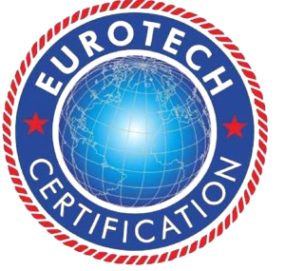ISO 9001 – Certification of the quality management system
What is ISO 9001?
ISO 9001 is an internationally recognized standard for quality management systems (QMS). It provides a framework for organizations to ensure they meet customer and regulatory requirements while continuously improving their processes. ISO 9001 is part of the ISO 9000 family of standards and is the only standard in the family that can be certified.
### Key Features of ISO 9001
1. **Customer Focus**:
ISO 9001 emphasizes the importance of understanding and meeting customer needs and expectations. Organizations must consistently strive to enhance customer satisfaction by delivering products and services that meet or exceed requirements.
2. **Leadership**:
Effective leadership and management are crucial to the success of a quality management system. ISO 9001 requires top management to demonstrate leadership and commitment to the QMS, ensuring that quality objectives align with the organization’s strategic direction.
3. **Engagement of People**:
The standard recognizes that the involvement of people at all levels is essential for an effective QMS. Organizations must ensure that employees are competent, empowered, and engaged in contributing to the achievement of quality objectives.
4. **Process Approach**:
ISO 9001 promotes a process-oriented approach, where activities and resources are managed as interrelated processes. This approach helps organizations achieve consistent and predictable results, optimizing performance and efficiency.
5. **Improvement**:
Continuous improvement is a core principle of ISO 9001. Organizations are required to identify opportunities for improvement and take necessary actions to enhance their processes, products, and services continually.
6. **Evidence-Based Decision Making**:
Decisions affecting quality should be based on the analysis and evaluation of data. ISO 9001 encourages the use of accurate and reliable data to make informed decisions that drive organizational success.
7. **Relationship Management**:
The standard emphasizes the importance of managing relationships with interested parties, such as suppliers, partners, and customers. Effective relationship management helps to ensure sustained success.
### Benefits of ISO 9001 Certification
1. **Improved Efficiency and Productivity**:
Implementing ISO 9001 helps streamline processes, reduce waste, and improve efficiency. This leads to higher productivity and cost savings for the organization.
2. **Enhanced Customer Satisfaction**:
By consistently meeting customer requirements and improving product and service quality, organizations can enhance customer satisfaction and loyalty.
3. **Market Competitiveness**:
ISO 9001 certification is a mark of quality and reliability. It can provide a competitive advantage, as many customers and stakeholders prefer to work with ISO 9001-certified organizations.
4. **Regulatory Compliance**:
Adhering to ISO 9001 helps organizations comply with relevant regulatory and statutory requirements, reducing the risk of legal issues and penalties.
5. **Improved Risk Management**:
The standard’s focus on risk-based thinking enables organizations to identify, assess, and manage risks effectively, leading to more robust and resilient operations.
6. **Employee Engagement and Morale**:
A well-implemented QMS involves employees in the decision-making process and empowers them to contribute to continuous improvement. This can boost employee morale and engagement.
### How We Implement ISO 9001
At EUROTECH CERTIFICATION, we are dedicated to maintaining the highest standards of quality across all our operations. Our implementation of ISO 9001 involves:
– **Quality Management System**: Establishing and maintaining a robust QMS that aligns with ISO 9001 requirements.
– **Customer Focus**: Continuously seeking to understand and meet the needs and expectations of our customers.
– **Leadership Commitment**: Ensuring top management is actively involved in promoting and supporting quality initiatives.
– **Employee Training and Engagement**: Providing ongoing training and encouraging employee involvement in quality improvement efforts.
– **Process Optimization**: Continuously reviewing and optimizing our processes to enhance efficiency and effectiveness.
– **Continuous Improvement**: Regularly monitoring, measuring, and improving our QMS to adapt to changing needs and expectations.
By adhering to the principles of ISO 9001, we demonstrate our commitment to quality, customer satisfaction, and continuous improvement.
